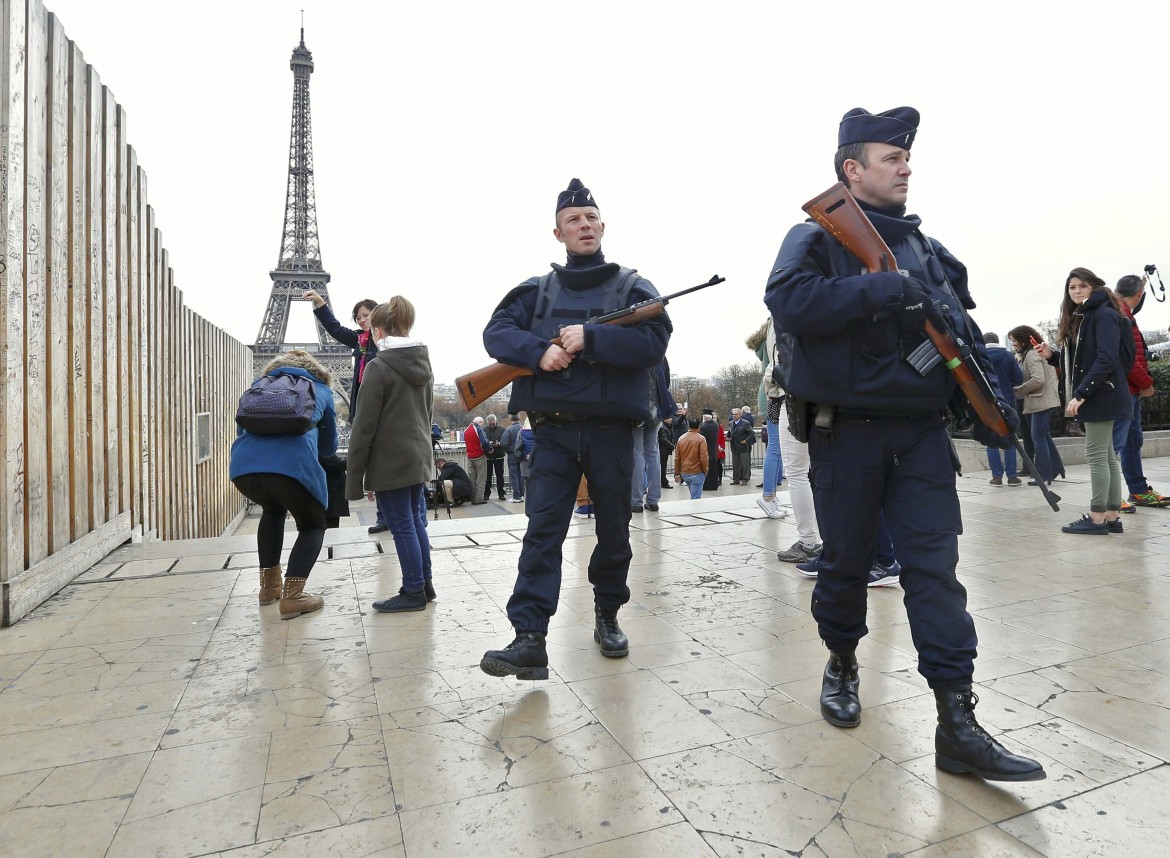Commentary
No to ‘semi-freedom’
The French government has stripped citizens of basic rights with its new emergency law. While these laws may seem pressing now, we cannot forget that partial freedom is unacceptable.

After Paris, the deserted streets of Brussels present us with dramatic clarity the question of whether freedom is a fair price for security.
France has already decided the answer, passing Law 2015-1501 on Nov. 20, which extends the state of emergency the government declared on Nov. 14, while amending and enhancing a 1955 law governing states of emergency.
For three months, there will be heavy restrictions on rights and freedoms, while administrative authorities can act without the intervention of the courts.
It’s astounding that, by virtue of a general appeal to public order and security, the Minister of the Interior and the prefects could force entry into people’s homes; make arrests; conduct surveillance; prohibit contact with certain individuals; withdraw passports; ban driving, assemblies and meetings; and dissolve associations (a measure that survives the termination of the emergency).
It is doubtful that an arsenal so impressive is consistent with the French Constitution. And yet the courts allow it.
Such provisions were already present in the original law of 1955. In 1985, after the extension of a state of emergency declared for New Caledonia, the law was brought before the Constitutional Council, the highest constitutional authority in France, by the parliamentary opposition. The opposition argued the lack of a constitutional basis, saying it should only be invoked under a state of siege. But with decision 85-187 DC of 25.01.1985, the Council green-lighted the law and left its application up to broad interpretation.
Today, there is also the possibility of home searches at any time of day or night in any place, including places where there is “serious reasons to think that the place is frequented by people whose behavior poses a threat to security and public order” (Article 11, as amended).
To get your home invaded, you need only a family friend, or to have correspondence on social media, with someone who is a suspect. The only places excluded from warrantless search are those of parliamentary mandate, or locations for the professional activities of lawyers, judges and journalists. The search allows officers to seize a complete copy of the memory cards of phones, computers and connected devices, even remotely.
This is a preview of Big Brother. But it is unlikely that the Council’s decision in 1985 will be overturned.
In apparent contrast, the new law abolishes limits on information and the press provided by the 1955 law. But it only deletes the tool because it isn’t needed.
The voices of terrorists today don’t pass through traditional media but through sophisticated technological tools and the virtual world.
Besides, France after the Charlie Hebdo massacre already adopted a Law 912 of July 24, 2015, severely restricting information. It ranges from granting authorities the use of listening devices to the monitor and closure of websites to the installation of “managers,” black boxes that filter every communication. The courts don’t intervene.
It’s a law aimed not only at combating terrorism, but to protect a wide spectrum of strategic interests, and has come under sharp criticism for its similarities to the Patriot Act and the NSA’s mass surveillance program, both radically unconstitutional.
One couldn’t help but notice that the new emergency law contains equally troubling provisions, yet passed in silence without criticism and with broad public support. Security trumps freedom.
A similar wind is blowing in Italy — and the rest of Europe and America.
A growing number of citizens are willing to exchange rights for security. The trend is understandable, but dangerous. The authorities say they want to maintain our way of life. But the guarantee of rights and freedoms is the invisible net that makes this model possible and vital.
We know this model is not without risks.
But we must say emphatically that in Italy a law like the French emergency law would be unconstitutional. It would violate the reserve of law and the reserve of jurisdiction — essential safeguards that limit the power of administrative authorities to formulate and apply legislation.
Only the elected parliament can limit freedoms and rights, and only a judge — autonomous, independent, impartial — can evaluate the restrictions. This constitutional bedrock must be maintained.
It can — and therefore must — be respected without any consideration of the diminished effectiveness of “intelligence.”
In the history of our country, we have already experienced threats to rights and freedoms. The Constitutional Court has thrown out these measures in the past, and we must stay on course.
For three months, France will be a country on watch. A people under suspicion. In the National Assembly, it has been suggested that the emergency law become a droit commun — an ordinary law — because the threat will last beyond the end of the three-month period. It is very possible the law will pass.
But don’t forget: It can be easy to grow accustomed to semi-freedom.
Originally published at http://www.ilmanifesto.info/no-a-un-regime-di-semi-liberta/ on 2015-11-24
